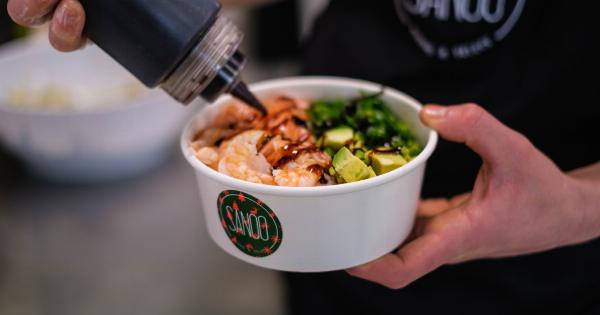Fatty liver disease, also known as hepatic steatosis, is a condition characterized by the accumulation of fat in the liver cells. It can be caused by excessive alcohol consumption, obesity, insulin resistance, or certain medications.
Making certain dietary changes is crucial in managing and preventing fatty liver disease. Here are some foods that you should include in your diet if you have this condition:.
1. Fruits and Vegetables
Fruits and vegetables are rich in antioxidants, vitamins, minerals, and fiber, which are all essential for maintaining a healthy liver. They help reduce inflammation and oxidative stress in the liver.
Include a variety of colors in your diet, such as leafy greens, berries, citrus fruits, cruciferous vegetables, and tomatoes.
2. Whole Grains
Whole grains like brown rice, oats, quinoa, and whole wheat are packed with fiber and nutrients. They have a lower glycemic index compared to refined grains, which means they have a slower impact on blood sugar levels.
Consuming whole grains can help control insulin resistance, a common underlying cause of fatty liver disease.
3. Lean Proteins
Choose lean sources of protein like skinless poultry, fish, tofu, and legumes. These protein sources are low in saturated fat and can help promote liver health. Avoid processed meats and limit your intake of red meat, such as beef and pork.
4. Healthy Fats
Incorporate healthy fats into your diet, such as avocado, nuts, seeds, and olive oil. These fats provide essential fatty acids, which help reduce inflammation and support liver function.
Avoid saturated fats found in fried foods, fatty cuts of meat, and high-fat dairy products.
5. Green Tea
Green tea is loaded with antioxidants called catechins, which have been shown to have liver-protective effects. Regular consumption of green tea may help reduce liver fat accumulation and inflammation.
6. Coffee
Studies have shown that coffee consumption is associated with a reduced risk of liver disease progression, including fatty liver disease. It may help decrease liver inflammation and enhance liver enzyme levels.
However, moderation is key, and excessive coffee consumption should be avoided.
7. Omega-3 Fatty Acids
Omega-3 fatty acids, found in fatty fish like salmon, mackerel, and sardines, have anti-inflammatory properties. They can help prevent liver fat buildup and reduce the risk of complications associated with fatty liver disease.
If you don’t consume fish, consider a high-quality omega-3 supplement.
8. Herbs and Spices
Certain herbs and spices are known for their liver-supportive properties. These include turmeric, ginger, garlic, cinnamon, and dandelion root. They have antioxidant and anti-inflammatory effects, which can help protect and heal the liver.
What to Avoid for Fatty Liver Disease
In addition to incorporating liver-friendly foods, it is equally important to avoid or limit certain foods that can worsen fatty liver disease. Here are some foods and beverages to avoid or consume in moderation:.
1. Alcohol
If you have alcoholic fatty liver disease or any form of liver disease, it is essential to completely avoid alcohol. Alcohol is a major contributor to liver inflammation and fat accumulation.
It can rapidly worsen the condition and lead to more severe liver damage.
2. Added Sugars
Foods and beverages high in added sugars, such as sodas, candies, pastries, and sweets, should be limited or avoided. They are high in calories and can contribute to weight gain, insulin resistance, and liver fat accumulation.
3. Refined Grains
Refined grains like white bread, white rice, and pasta have been stripped of their fiber and nutrients. They have a higher glycemic index and can cause a spike in blood sugar levels. Opt for whole grains instead.
4. High-Fat Foods
Avoid or limit foods rich in saturated and trans fats, as they can increase inflammation and contribute to liver damage. Stay away from fried foods, fast food, high-fat dairy products, and fatty cuts of meat.
5. Sodium
Excess intake of sodium can lead to fluid retention and may worsen liver function in individuals with fatty liver disease. Limit your consumption of processed and packaged foods, which tend to be high in sodium.
6. Sugary Beverages
Sugary beverages like soda, fruit juices, and energy drinks are loaded with added sugars, which can increase liver fat buildup and contribute to weight gain. Opt for water, herbal tea, or unsweetened beverages instead.
7. Artificial Trans Fats
Avoid foods that contain artificial trans fats, as they have been linked to an increased risk of liver disease. Read food labels carefully and avoid products that list “partially hydrogenated oils” in their ingredients.
By adopting a healthy diet and avoiding foods that worsen fatty liver disease, you can improve liver health, reduce inflammation, and mitigate the risk of complications.
Consult with a healthcare professional or a registered dietitian for personalized dietary advice tailored to your specific condition.


























